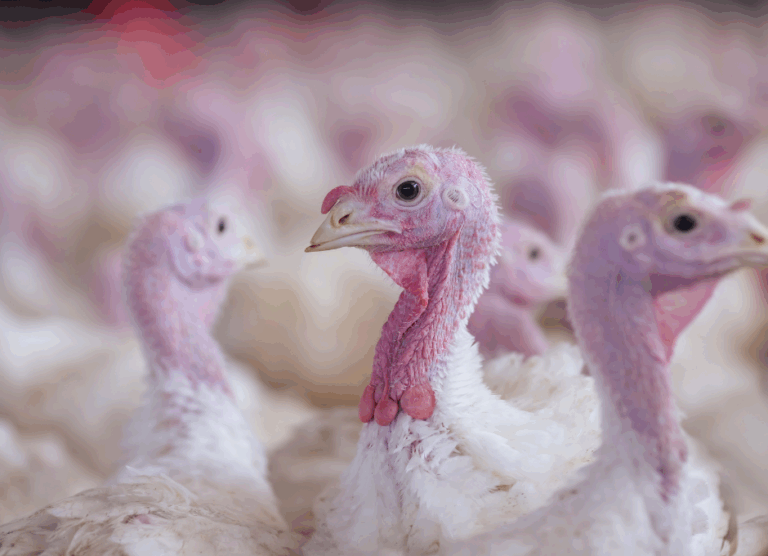The benefits of including probiotics in turkey diets have been highlighted in a new meta-analysis spanning more than 30 years of data.
The power of probiotics in turkey diets and their role in promoting bird health and productivity has been confirmed in a new meta-analysis study.
Lallemand Animal Nutrition’s poultry sales manager, Antonia Chittock, said the publication of a turkey-specific study was welcome due to the notable differences between turkeys and other avian species.
“Genetics, diet and rearing environment are just three factors that differ between turkeys and chickens, but there are many more which highlight the importance of turkey-specific data on the benefits of probiotics,” she said.
Turkeys are highly sensitive to gut microbiota imbalance and dysbiosis which can lead to inflammation and subsequent health issues.
“This means careful thought is needed when selecting the most appropriate probiotics to improve health and performance,” she said.
Over 30 years of research
A combination of 16 trials, carried out over three decades across multiple countries, has shown positive impacts on turkey health and production when diets are supplemented with the following probiotics:
The lactic acid bacteria Pediococcus acidilactici, known commercially as Bactocell
The live yeast Saccharomyces cerevisiae boulardii CNCM I-1079, known commercially as Levucell SB
“Bactocell consumes indigestible sugars to produce high levels of L+ lactic acid, which is an important energy source for the birds,” Chittock said.
“L+ lactic acid can be absorbed directly by the gut and locally decreases pH. It also supports other beneficial gut bacteria that produce short-chain fatty acids, such as butyrate, which also benefits the birds’ health and performance.
“Levucell SB improves gut health in turkeys by promoting an anaerobic environment, reducing harmful pathogens like Salmonella, and enhancing nutrient absorption for better growth and feed efficiency.”
Trials have assessed the positive effects of both these probiotics on body weight, feed conversion ratio (FCR) and gut histology.
“For those rearing turkeys, body weight, FCR and mortality are often the most important metrics,” said Chittock.
Key findings from the meta-analysis
“The results showed that turkeys fed probiotics outperformed the control group, with significant improvements in body weight and FCR overall,” said Chittock.
On average, the supplemented birds were 52g heavier compared to birds not supplemented with a probiotic.
“This improvement was more pronounced in birds supplemented with Pediococcus acidilactici, which showed a larger body weight increase of 71g.”
During the trials, the bird’s digestion and feed efficiency was also assessed, with improvements noted in the reduction of FCR.
“An average FCR reduction of 3.9 points was recorded across the supplemented birds, with Saccharomyces cerevisiae boulardii showing a greater FCR reduction of up to 8 points,” Chittock said.
Improvements to gut histology
Probiotics help improve nutrient absorption and support healthier gut structures, which essentially leads to a positive impact on performance.
“The data shows probiotics can increase the height of the gut villi as well as improving crypt depth, which helps with nutrient absorption and fostering a beneficial microbiota,” said Chittock.
Bactocell has also been shown to significantly benefit turkey breeders with an average increase of 0.4% in laying rate, alongside a 1.7% reduction in feed consumption and a decreased mortality rate from 5.29% compared to 4.22%.
“The data presented in the meta-analysis demonstrates the efficacy of including probiotics in turkey diets to support growth and performance, with significant improvements in feed efficiency and the potential to support overall bird health.”


